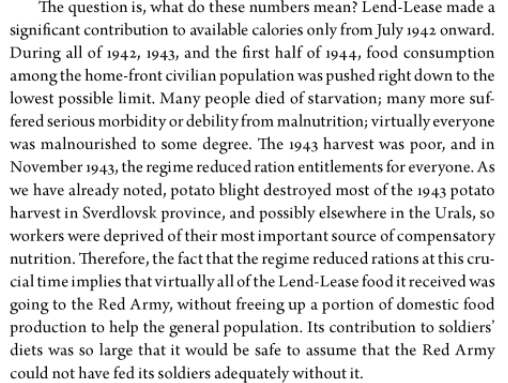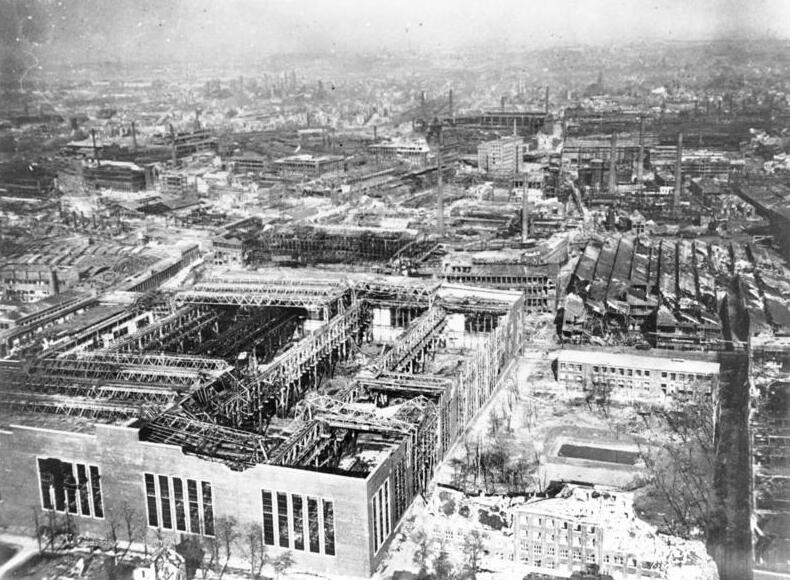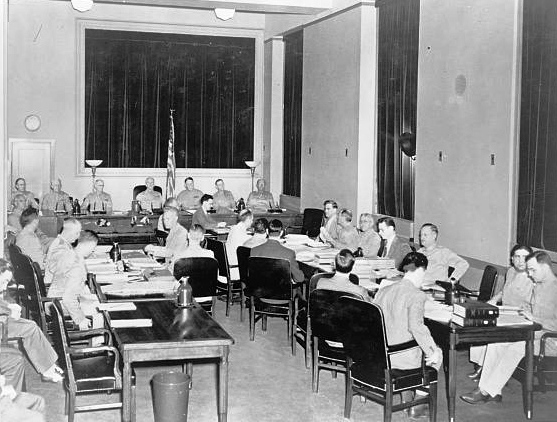Ok, I'll have to reply in shifts because you wrote a lot and I don't have the time/patience to try and do even all of this post in one sitting.
I'm working on the greater economic and technological potential that the German empire being proposed would have, since both were almost insanely aggressive.
From what I understand of the German system under Hitler it was basically a case that Hitler made decisions and then plans had to be made for their implication. There might have been more detailed war plans, such as the US colour plans, which would be logical given the military history of the Prussian/German army - although rather myopic in cases such as in 1914 - but not aware of any.
Even with said potential Hitler and the Nazi leadership really didn't want to fight the US. This is quite well documented. They wanted to dominate Europe and have a trade bloc from which they could economically compete with the US, since they would have more than enough to occupy them in their backyard; "Man In The High Castle" is not great alternate history.
During wartime when the situation was fluid war planning did at times exist like that, but in the pre-war period there were war plans based on likely war scenarios, which like the Color War Plans of the US are well documented and did not necessarily stem from Hitler ordering them. Planning was done in OKH independent of Hitler's whims especially pre-1942, OKW is where Hitler had his way since they were his personal staff after he took over War Minister duties for himself. Even though technically head of OKH after 1941 the CoS of that organization generally operated with substantial independence in the realms where they had domain, like the Eastern Front. I'd imagine in peace time Hitler, assuming he was still in charge and healthy, they revert to a more theoretical series of contingency planning.
Of course you do also have to realize that what you describe is also how things worked for the Allies; the politicians in charge set directives based upon their Grand Strategy and had their staffs carry out planning; certainly said staffs have serious input, but then so did they often in Hitler's planning, like at Kursk as one example.
Not just on shipping to Britain. Their 2nd happy time was basically on the US coastal traffic and shipping in the Caribbean because they had correctly realised/guessed it was largely undefended. True in themselves they aren't a threat to the US other than its commercial and overseas trade but in the medium term there are potential options even if the Germans are still as off-course as OTL with their nuclear programme.
I mean the shipping they hit was even indirectly servicing British war potential; every ship knocked out from east coast US shipping is one that would have to be replaced, so the resources to make it couldn't be used on a ship for Britain or to ship goods to Britain, while the loss of said ship cut resources that could be moved around for US production, which was servicing the British.
What do you mean about medium term potential options to threaten the US? Their sabotage mission failed badly:

en.wikipedia.org
I was thinking more of possible economic penetration given that they would be a lot more willing to encourage exports to German Europe than the US was to its own territory and also given the US's history of interference in Latin America.
I'm not understanding what you mean here.
Are you sure about the Irish, other than a few hot heads and political figures? Especially after the bombing of Dublin?
Yep:

en.wikipedia.org
During the World War II alliance, anti-British sentiment took different forms. In May 1942, when conditions were highly problematic for British prospects, American journalist
Edward R. Murrow privately gave a British friend an analysis of the sources of persistent anti-British sentiment in the United States. He attributed it especially to:
partly the hard-core of anglophobes (Irish, Germans and isolationists); partly the frustration produced by war without early victories; partly our bad behaviour at Singapore; and partly the tendency common to all countries at war to blame their allies for doing nothing.
[27]
Anglo-phobia was actually extremely common in the US at the time and only got worse so that by 1944 there were actually anti-British protests on US university campuses! Of course by then Britain was behaving pretty shittily towards any number of countries, not least of which was Greece. Anti-Imperialism was even worrying British newspapers:
London Daily Sketch charges US anti-Brit propaganda aids Japanese

www.nytimes.com
As to the Irish themselves, they kept up contact with the Nazis until they were convinced they would lose as late as 1944, yes even after the accidental bombing of Dublin:

www.qub.ac.uk
Supposedly de Valera even was open to invading Northern Ireland if the Germans invaded Britain.

en.wikipedia.org
Yes in the short term Germany was happy with the existing US investments there but how likely is that to continue given the steady carving up of industry in the Reich and empire by assorted interest groups, of which Goring was the most notorious. Plus given the attitude of total control and seeking to weaken any enemies [which is anyone not under their control in the Nazi mentality.]
I think they'd be more than willing to work with US businesses like Ford and IBM if the US didn't touch German patents and industries in North America. If they did then US investments would be nationalized too, so both sides had a 'live and let live' incentive there. Goering didn't nationalize US industries, even during WW2, which is why US properties, like the Ford owned factory wasn't bombed by the US:

en.wikipedia.org
The third largest producer,
Ford's subsidiary at
Cologne was never attacked
These companies (Ford, GM, IBM) even received profits from their German subsidiaries during the war and had contacts with these subsidiaries that were even investigated by the US government for treason during the war.
He did refer to unlimited oil. He's also repeatedly ignore actual limitations they did have and still would have. For instance in his mention of German plans for massive increases in air production which were "only canceled due to oil restrains." The regime may have declared that other assets were to be committed to such a programme but often didn't meet their targets in such plans. Also contrary to his arguments, such resources would have restricted other production as if those resources [skilled manpower, machine tools, engine production, steel etc] had been committed and somehow the oil had been found they wouldn't have been left standing unused for the rest of the war. As such if that programme had become practical and entered production it would have reduced resources for other activities as OTL. Ditto his insistence that there is no population, industry or raw materials in the Soviet Union east of the A-A line. Or that because the German army could live off the land in the food rich Ukraine it could just as easily do so in the severely food deficit northern core territories. I could mention others but those are the ones off the top of my head. Those are the basic reasons why I didn't respond to his post as he has proved so unreliable.
I'll let you and him hash that out, which I think you've already done.
Actually there are ways of winning the war without the bulk of the Soviet resources, one of which we're both well aware of, although it wasn't clear at the time.

Plus given the knowledge at the time the need for the Soviets might have been unclear. For instance there was no eastern front in 1918 and Germany had a massive 'empire' but it still collapsed.
In WW2 the A-bomb isn't an insta-win button, especially if enemy air defense hasn't already been broken. It was able to work so well against Japan due to facing virtually zero air defenses. Of course they only knew that it worked in July 1945, you don't fight out a war for years on the potential that eventually down the road a secret weapon might work, one they couldn't reveal to the US public before it was used in combat. Plus the US public won't continue to fight for years with rationing and privation without hope of victory at reasonable cost, hence the panic the US and UK had that the Soviets might ever make a separate peace deal.
1918 is not 1942 and Nazi Germany's empire is quite a bit more powerful than Imperial Germany's holdings.
The point however is that I dispute the idea that surrendering vast resources to Nazi Germany, most of which they can't get with any reasonable allied planning for defence is better than fighting on.
How do you think they can actually prevent anything without the USSR?
Yes but given that while a dramatic force German armour was a relatively small proportion, in terms of production demand, of the total German armed forces. As such it can be misleading to the
I think you didn't finish the thought. And yes I know, that's my point: naval construction used up vastly more resources than panzers and panzers were a large line item in German production.
If you reduce investment you also release massive resources for elsewhere. Also the big problem with the strategic bombers was like the armies in WWI they were often committed prematurely with insufficient support and organisation and then used rather erratically. As I understand it, as you say elsewhere, the main effect was after the landings in France, or more significantly the breakout across most of northern France started to dismantle the German early warning systems. I could see ways in which the strategic bombers could be used more efficiently, or largely allowed to lapse which would free up massive resources for the western powers - although the most obvious positive feedback loop, by winning the Atlantic battle earlier, was already largely a lost opportunity by 1942. It would also free up some German resources but given the largely ineffective bombing campaigns prior to 1944 - unless you accept Tooze's argument for a continued Ruhr campaign - I think the allies are the biggest winners here.
Theoretically they could, but given Allied politics and the personalities involved they wouldn't without a major and separate POD. Without the USSR the Allies have no serious way to fight at a cheap cost in terms of lives other than their strategic bombing and they signaled that if the USSR quit that is how they would fight anyway. I highly disagree that the bombing campaign was ineffective prior to 1944, it just wasn't yet properly applied to achieve the full effect it would later on when better intel came with the invasion of France and they could review what the impact of their bombing actually was; without the invasion of France though then it would still be misapplied. And if the Allies turned to tactical bombing and large armies then they give the Germans a massive break on the production end, which means a lot more Allies battle deaths at the sharp end of the spear. Strategic bombing was the cheap way to fight believe it or not; the Germans found that out the hard way when fighting the Soviets.
Yes they will be markedly less limited but there will still be limits. This is something that HL seems to refuse to accept, while also assuming that the allies are incapable of any improvement on their own performance. Germany was already largely maxed out in manpower because of their huge military commitment and that's unlikely to change much, if the allies maintain the war effort.
Why would the Allies improve their own performance? Their problems were structural too. I disagree with your characterization of HL's arguments, I think you're strawmanning what he's saying. And yes Germany does have resource limits even with a defeated USSR, but there are major gains to be had by knocking out the USSR even as late as 1944 given that something like 45% of the entire war economy was dedicated to fighting them by that point. Germany being maxed out in manpower is somewhat deceptive given that they were still able to generate major replacements as late as March 1945, its just that they couldn't keep up with the major losses of 1944 and expanding Allies armies on top of continuous Soviet pressure. So the USSR out in 1943 saves them millions of men, especially minus the Stalingrad debacle, which then all end up used against the Wallies. Even with the Soviets in the war on the ground until the collapse in March 1945 the Germans were still getting 1:1 or better combat casualty ratios (overall) vs. the Wallies despite every possible disadvantage and there is no way the Wallies would accept millions of casualties necessary to beat the Germans.
Plus you're forgetting that the main reason the Germans didn't have more Eastern European manpower available was the general feeling those people's had that Stalin wouldn't lose the war after 1941-42, so desertions, surrenders, and collaboration dried up and partisan war increased (which was also a major factor suppressing further collaboration since the threat of assassination was extremely high, the Soviets not only found collaborators easier to kill since they had less security than the Germans, but targeting them was a higher priority given the threat unpunished collaboration posed to the survival of the Soviet state). If Stalin is basically defeated there would be millions of opportunists who would be interested in saving their own skins by working with Hitler. Even if just 2% of the population (much less than in France) collaborated then the Nazis wouldn't have any problem managing the East with a skeleton crew of German manpower.
From most of what I've read there wasn't a massive increase in efficency but rather more resources, especially forced labour which of course raises doubts about quality, and raw materials diverted from an already tight domestic market. Coupled with the growing encroachment by sectional interests in the party seeking more power and resources. There will be increases in total production, especially with longer access to resources from the east but its still limited and I can't see it matching the western allies who have much greater resources overall.
That would be incorrect. US reports about the German economy were quite clear about how efficient the German war economy had become from 1939-45. Unfortunately guys like Tooze overplayed the myth of Speer and his 'take down' of that and distorted the historical record in order to sell books with their 'ground breaking' thesis. The reality is that Germany was not at all prepared for a general war in Europe in 1939 and took years to finally get everything sorted. 1942 was the inflection year and Speer was the guy who organized that. Certainly he exaggerated parts of his success, but there was a major improvement in production without additional resources committed from the point he took things over. Funny how just about every history of the Nazi war economy can demonstrate that, but somehow Tooze is the the only correct historian to people online. Bias confirmation is a real issue.
Wallied resources, though greater even in a Germany wins in the east scenario, are still bottlenecked due to the need to also fight Japan and ship everything across the Atlantic or from the Empire. Shipping then is the constraint, which limits all else and it is split between the Atlantic and Pacific (mainly). If they cut off the USSR from L-L (or not offer it for whatever reason) then there is more shipping and production resources of course, but then more Allied manpower is needed to fight, which means taking men out of the factories and putting them into combat, which means reduced production and increased need for resources for combat units, including global sustainment infrastructure, which is vastly more expensive and resource intensive than simply building up new divisions. IIRC it took 9 men to equip and sustain 1 man in Europe and then on top of that something like 8 men to sustain 1 man in combat.







